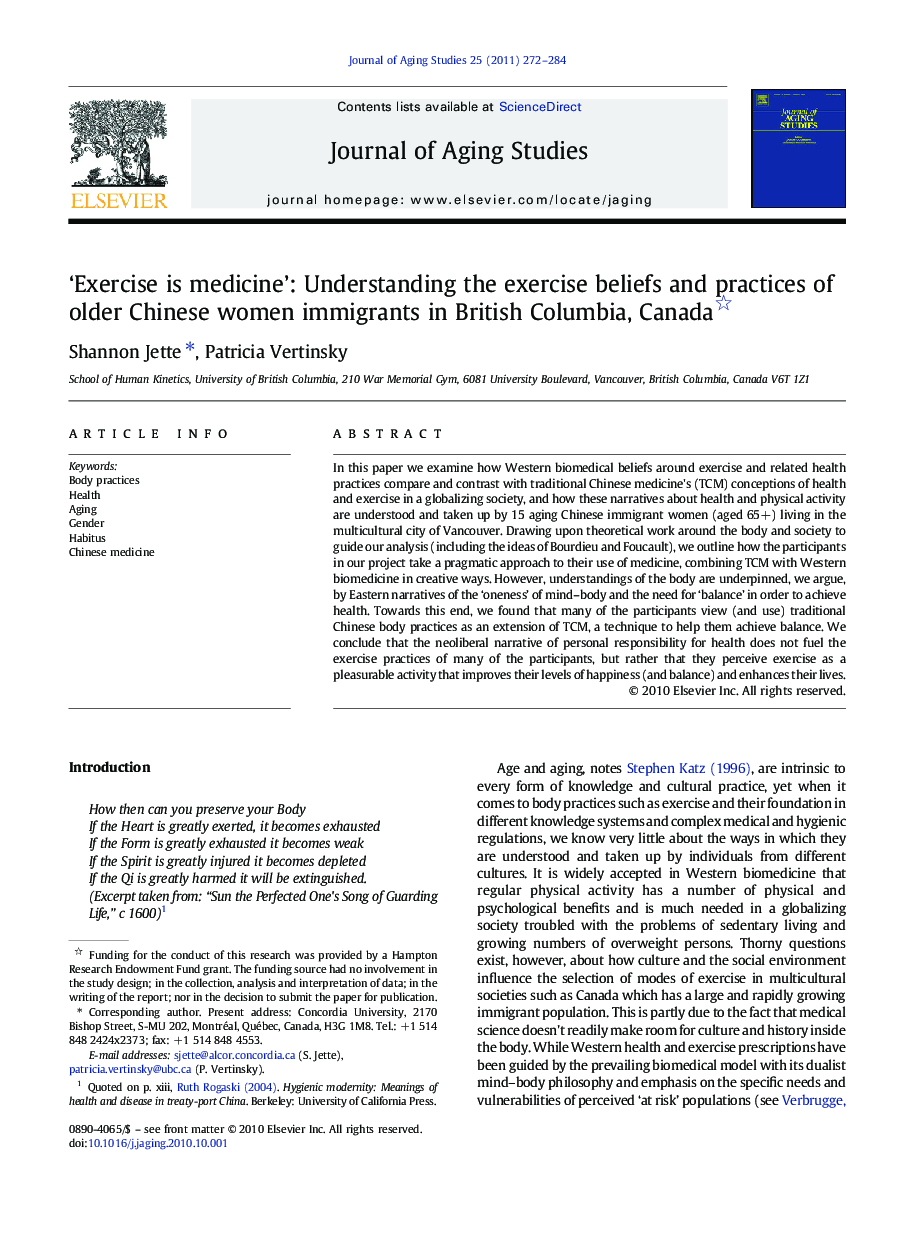| Article ID | Journal | Published Year | Pages | File Type |
|---|---|---|---|---|
| 1081941 | Journal of Aging Studies | 2011 | 13 Pages |
In this paper we examine how Western biomedical beliefs around exercise and related health practices compare and contrast with traditional Chinese medicine's (TCM) conceptions of health and exercise in a globalizing society, and how these narratives about health and physical activity are understood and taken up by 15 aging Chinese immigrant women (aged 65+) living in the multicultural city of Vancouver. Drawing upon theoretical work around the body and society to guide our analysis (including the ideas of Bourdieu and Foucault), we outline how the participants in our project take a pragmatic approach to their use of medicine, combining TCM with Western biomedicine in creative ways. However, understandings of the body are underpinned, we argue, by Eastern narratives of the ‘oneness’ of mind–body and the need for ‘balance’ in order to achieve health. Towards this end, we found that many of the participants view (and use) traditional Chinese body practices as an extension of TCM, a technique to help them achieve balance. We conclude that the neoliberal narrative of personal responsibility for health does not fuel the exercise practices of many of the participants, but rather that they perceive exercise as a pleasurable activity that improves their levels of happiness (and balance) and enhances their lives.
